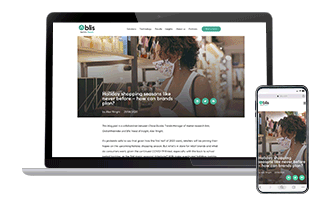Starting a company is a huge investment—emotionally, physically and financially. Entrepreneurs pour a lot of time, energy and sleepless nights into their new businesses. So it’s no wonder they often have a hard time relinquishing control of, well, everything.
I should know: By the time I turned 26, I had started and sold two companies—and sharing responsibility wasn’t always easy. Putting your project into someone else’s hands can feel like giving your house keys to total strangers. At least, that’s how it felt when we were deciding if we should sell Ring Ring Media, my first company, with the tech providers Amobee. We knew our expertise needed stronger technological support, and Amobee would benefit from our in-depth expertise, but it felt risky: We would be losing our independence.
Even after we agreed on the acquisition, we had many difficult conversations about which tech components we would keep and which we would scrap. I remember feeling defensive. After much to-ing and fro-ing, we finally came to compromise. But I realized that when it came to letting go, I still needed some more practice.
While it’s understandable that a founder would want to stay involved in every aspect of the business, giving up some control is the only way businesses can flourish. When entrepreneurs resist the temptation to micromanage around every corner, the office will be more efficient, employees will work better and stick around longer, and the business will flourish.
Here are three ways entrepreneurs can begin to let go—and set their companies on the path to success.
1. Perfect the company’s hiring and onboarding processes.
Hiring the wrong person can be costly for both a company’s reputation and ROI. According to a CareerBuilder survey, 27 percent of American employers say a single bad hire can cost over $50,000, not to mention softer costs like diminishing morale.
In order to feel comfortable handing over the reigns to the people they hire, business owners must implement a hiring process they believe in. When leaders have faith in how they hire, they’ll have faith in who they hire.
Especially in the early stages, entrepreneurs can also reach out to their existing networks and employ people they already know and trust. In fact, my very first boss has worked for me at three different companies. Similarly, one major incentive for opening our Blis office in Dubai was that we already had an individual in mind to start it. She was someone I had worked with for over five years, so I had faith in her to successfully kick start our operation. It paid off, the business has grown 3x a year in as many years!
2. Empower your employees.
Employee empowerment has become a buzzword in startups and HR circles, but true empowerment is key to a successful company. Founders need to admit to themselves that they aren’t specialists in everything and will need to rely on others.
How can entrepreneurs empower their employees? They can start by delegating—and trusting their staff to get the job done. For example, when thinking about examples for this section, I reached out to my employees for ideas!
In fact, one of them told me: “You instilled a culture of moving fast and effectively, of not getting too bogged down by worrying about mistakes or trying to be perfect.” When delegating tasks, entrepreneurs should give their employees the freedom to make their own decisions as well as their own mistakes.
Why? Empowering your employees will, of course, keep them happy and motivated. But it’s also a question of economics: It’s way more efficient to have qualified and competent individuals doing what they do best. So as long as you’ve hired people you trust, why not trust them to get the job done?
3. Give your workers a stake in the company.
I’m not just talking about this figuratively. One of the best ways to get employees to feel invested in your business is to let them invest in your business—literally. At Blis, many employees are shareholders, not just a select few at the top. When I sold my previous companies, employees from the CEO to the receptionist were able to share in our success. It gives me personal satisfaction as well as confidence in my employees when I know they, too, feel invested in the company.
In addition to giving staff a literal stake in your business, entrepreneurs should foster a culture where people feel emotionally and personally invested. At Blis, this isn’t just about ticking a box for a team-bonding event once a year; it’s about creating a company culture that promotes cooperation and goodwill. So far, we’ve held sports days in parks in London, spent evenings singing karaoke in Singapore, taken cooking classes in the U.S., and held surf lessons in Australia. And it’s paid off: My colleagues often spend time with each other not because they have to, but because they want to. When I walk out of the office on a Thursday night and see my colleagues sitting together in the local bar having drinks, I know we’re doing something right.




